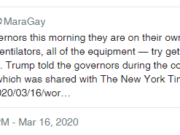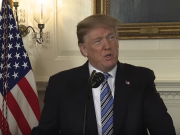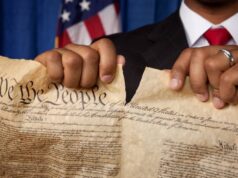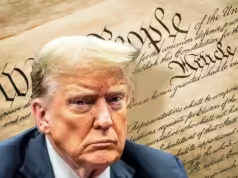The entire Gorsuch confirmation controversy was a political charade. I predicted it, and then I explained more fully why the Democrats wanted to kill the so-called filibuster. In a party system where the two parties thrive by rallying their auto-bots and true believers, everyone has played their respective roles from phony outrage to true indignation. The party faithful have been duly fueled for the next fight on how to rip America to shreds, placing party over country. Ironically, however, the Gorsuch confirmation has triggered an unintended but fabulous consequence, a return to Constitutional “originalism” in the truest sense of the word.
Nowhere in our fine Constitution does that document require 60 votes to give consent to the appointment of a Justice to the Supreme Court. The Gorsuch confirmation, which sought to elevate a Justice often considered as an “originalist,” triggered the return to originalism in nominating, advising on, and ultimately consenting to the sitting of Justices. It’s quite ironic.
Legal scholars and political parliamentarians can and have made fine arguments that justify a procedure that permits minority political voices to hold-up and stop certain appointments. I have read them all, and not one of them is without some intellectual merit. The problem is that such a hurdle … or protection … is not in the Constitution.
In fact, when I tweeted out that the Gorsuch confirmation was the ultimate return to Constitutional originalism, one of my favorite twitter trolls tweeted back, “In whose interpretation?” It isn’t in “an” interpretation; it’s “the” plain language of the document. Article II, Section 2 of the Constitution reads, in relevant part:
“… and he shall nominate, and by and with the Advice and Consent of the Senate, shall appoint Ambassadors, other public Ministers and Consuls, Judges of the supreme Court …”
Nothing in that clause requires 60 votes, 67 votes, or any other number of votes. The President “shall nominate, and by and with the Advice and Consent of the Senate” appoint Judges of the Supreme Court. Does that need interpretation?
In the Garland fiasco, we found out that many Americans either had no idea what our Constitution said about appointments, or they plain couldn’t read. That is, many wrongfully thought the President had some absolute right to get his nominees through the Senate, and that the duly elected Senate under this Constitution had inferior rights to that of the President. Some even thought it was unconstitutional that Garland didn’t get a vote.
No … no damn it … it was not.
Only the President may nominate; That’s his right. The Senate’s right is to give its advice and if it wants its consent. No vote is required. Likewise, nothing in that clause sets out a number of votes for appointing any Judge.
No one disputes that the Senate has the right to make procedural rules that govern how it debates and how it conducts its business. The 60 vote rule, however, was never “procedure.” That rule created a substantive change in the Constitution. It set a numerical hurdle in the Constitution that did not previously exist, and thus increased the burden on both the President and any Senate in exercising its duties and rights. Calling it a “rule” did not change its substantive effect.
When the GOP waived the “cloture rule” requiring 60 votes to end debate on a nominee, what it really did was restore the appointments clause back to its original intent and plain meaning.
That’s originalism I can live with.
Author: Richard Kelsey
Richard Kelsey is the Editor-in-Chief of Committed Conservative.
He is a trial Attorney and author of a #11 best-selling book on Amazon written on higher education, “Of Serfs and Lords: Why College Tuition is Creating a Debtor Class”
Rich is also the author of the new Murder-Mystery series, “The ABC’s of Murder,” book one is titled, “Adultery.”
Rich is a former Assistant Law School Dean and Law Professor. At Mason Law Kelsey conceived of, planned, and brought to fruition Mason’s Center for the Protection of Intellectual Property, known as CPIP, drawing on his expertise as a former CEO of a technology company specializing in combating cyber-fraud.
In 2014 he was elected by the graduating class as the faculty speaker at their graduation.
He is a regular commentator on legal and political issues in print, radio and on TV. Rich has appeared on hundreds of stations as a legal expert or political commentator. He provided the legal analysis for all stages of the Bob McDonnell trial and appeal for numerous outlets including NPR and WMAL.
Rich also writes on occasion for the American Spectator and CNSNews.com.
In his free time, Rich is part of the baseball mafia of Northern Virginia, serving on numerous boards and as a little league and travel baseball coach.
His Twitter handle is @richkelsey.
































